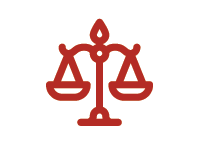Opening a Branch Office in Thailand
Most multinational companies who are looking to expand their business in Thailand usually refrain from setting up a Thai Limited Company. Instead, they prefer to expand in the region with the help of branch offices in Thailand. Under Thailand laws, branch offices of an global company are governed by the Foreign Business Act B.E. 2542 (FBA).
Therefore, if any activities of a branch office falls under any category of the FBA, it will necessitate a Foreign Business License (FBL). As per Thai law, the branch offices are not limited to the “non-trading” activities unlike the Representative Office and Regional Office. The branch offices can earn their income. The liabilities of the branch that arise due to the business activities in Thailand will not be limited to Thailand. In fact, the processes are allowed to extend to the overseas head office.
Therefore if investors are looking for doing business in Thailand, they can set up a Branch Office (“Branch”) here. A Branch is not a separate legal entity but a part of the main company. However, it functions as a separate tax entity. The branch normally forms a permanent unit of a foreign company. It needs to be registered with Thailand’s Ministry of Commerce.
The Foreign Business Act in Thailand
There are certain restrictions in place for foreigners who wish to run a business in Thailand according to the FBA B.E. 2542 (1999). As per the different types of business, they are either barred from operating it or required to get a license or a certificate before they can start their business. The various business types are defined under three lists annexed to the FBA. As per the FBA, a “Foreigner” can be any natural person who does not possess the nationality of Thailand; or any juristic person who is not registered in the country; or any juristic person who is registered in Thailand and has half or more than that of its capital shared by one of the above-mentioned persons.
The Business Lists under the Foreign Business Act are as follows:
Business List 1: This includes the list of businesses that cannot be operated by foreigners for special reasons.
Business List 2: This list includes businesses that are reserved for Thai nationals because of national safety, security, culture, and environment. The highest percentage of shares that can be owned by foreigners is limited to 60%, or it can be 75% only if the project is approved by the Cabinet.
Business List 3: This list comprises of the businesses in which the Thai nationals have not yet stepped in or are not yet prepared to compete with foreigners. Such businesses can be run by foreigners without any limitations on the number of shares that can be held by them. However, it is necessary for the business operator to obtain FBL before starting a business in Thailand. This must be applied for at the Thai Department of Business Development and also obligates its approval by the Foreign Business Committee.
The Branch Office of a foreign organization is also a “foreigner” under the FBA which is considered as a juristic person who is not registered in Thailand. Therefore, it needs to have an FBL before setting up a business in Thailand for activities under List 2 and 3. To get an FBL, the minimum working capital (in foreign currency) i.e. 25% of the average expenditures of three years should be brought into the country. And, it is mandatory that the minimum working capital must be equal to or more than THB 3 million.
In addition, the capital shall be paid as per the following timeline:
- At least 25% of the minimum capital should either be brought in or paid during the first three months of starting the business
- The next 25% of the necessary capital should be brought in or paid in the first year
- The next 25% of the necessary capital should be brought in or paid by the end of the second year
- The remaining 25% of the necessary capital should be brought in or paid by the end of the third year.
A Branch Office can continue to operate for an indefinite duration until its dissolution date unless a shorter period is specified in the application as per any contract for a particular project in Thailand. Usually, international contractors who do not aspire to do business in Thailand on a permanent basis set up Branch Offices for specific projects.
Characteristics of Branches in Thailand
The working of the Branch offices in Thailand is similar to limited companies. It does not have any shareholders or directors because it is not a registered company. Rather, it is just a local branch of a foreign company. This kind of business has its own advantages such as There is not any special requirement for foreign companies who want to register a branch office There is no need to bring in a local shareholder. Though foreign companies usually prefer to open a branch office that is effective and less expensive, it is still necessary to follow the requirements imposed by the FBA as per the laws of Thailand before opening a company in the country.
Other Specifications for Setting Up a Branch in Thailand
One of the most significant necessities to get approval for an Alien Business License to set up a branch office of a foreign corporation, is a total working capital of 5 million Baht (in foreign currency). This amount must be brought into Thailand at specified periods in a max of 4 years.
Furthermore, in order to set up Branch in Thailand, it is also required to register for VAT, request for a taxpayer ID and a Commercial Registration Certificate. A company can also operate a branch office of the foreign company in Thailand. In such a case they are not obliged to register a Thai limited company. FBA B.E. 2542 specifies the types of business that are not allowed to be run by foreigners. Some of these businesses will never be allowed, while some are permitted only if at least 40% of the shares are owned by Thai nationals. And, some others can be permitted with majority or 100% of foreign ownership.
Branch office that is into manufacturing industry or export of products from Thailand to foreign countries are not required to obtain the FBL. The other types of business, subject to the FBA, can be operated by a branch office in Thailand after having received the FBL from the Bureau of Foreign Business Administration, Business Development Department, Ministry of Commerce. And, if a branch office in Thailand is into manufactured goods, then it can sell its products in Thailand as well. However, if the same branch office plans to involve in the service business, it needs to get the FBL for the service business. Similarly, if a branch office exports products from Thailand and also plans to sell products inside the country, then the FBL for domestic sale business is needed.
The following documents are to be submitted to Thai’s Ministry of Commerce:
- A copy of the firm’s affidavit or related documents presenting the status of the juristic person along with details such as name, capital, objectives, address, list of directors and signing authority;
- A power of attorney that has been allotted to the authorized person(s) of the juristic person specifying its representative(s) to work in Thailand;
- A copy of the passport of the representative(s) if a foreigner. Alternatively, a copy of the ID card if the representative is a Thai national;
- A copy of the household registration, residence permit or papers that show temporary visa of the representative(s), under the law governing immigration;
- The affidavit of the applicant proving that the applicant, its manager(s), director(s), or representative(s) are qualified as per Section 16 of the FBA;
- A letter summarizing the details of the business activities that are applied for. This should include the information about the applicant’s profile, type of business applied for, particulars of business operation, capital amount, the structure of the business, its size, plan for the transfer of technology and employment-related details;
- A map depicting the location of the applicant’s place for operating his business in Thailand;
- A power of attorney, if any other person is authorized to function on behalf of the applicant (example: a consultant going to submit the application).
Some additional documents are required to be submitted if the applicant is a Government or state enterprise project contractor or subcontractor.
These include:
- A copy of a contract which has been signed or proof of the project approval (if the contract has not yet been signed)
- A letter, released by the contracting party and directed to the Director-General of the Business Development Department, that will certify the project
Granting of this letter must contain:
- Type of the business;
- Name of the contractor (applicant);
- Contract name, number, and date;
- Starting date and date of completion (including warranty period); and
- Value of the project (in Thai Baht).
Thailand Branch Office Tax Structures
While a Thailand Branch Office is the same legal entity as the foreign parent company, tax laws in Thailand treat it as a separate legal entity. The tax laws in Thailand treat a Branch Office as a profit-seeking entity, and hence, a Branch Office in Thailand is subject to all the transaction and income taxes which apply to any corporate profit-seeking entities in the country.
Summary of the taxes that the Branch Office in Thailand is subject to is as follows:
- Corporate income tax on the net profits of the branch office
- Withholding tax on payments of income to recipients in Thailand
- Withholding Tax recipients in foreign countries
- Personal withholding tax on payments of income to employees of the branch office
- Specific business tax (instead of value-added tax) on some specific types of business income transactions.
- Withholding tax on remittances of branch office profits to the foreign head office
- Company Value Added Tax on sales of goods and services in Thailand and on imports of goods and services into Thailand
- Stamp duty tax for effecting various instruments
Though it quite easy to set up a branch office in Thailand, yet the entire process is a bit lengthy and rigid.
Contact Startup in Thailand for a detailed discussion on potential partnership options and partnership business registration in Thailand.
Also check out the FAQ page for a quick overview of the critical factors to consider before starting a new business in Thailand.
Read more:
Legal Assistance in Thailand
Thailand Market Entry
Why Thailand Is A Good Business Destination
Business in Thailand – How Different it is from Rest of the World
Thailand reforming itself for doing business easier in Thailand
Growth of Startups in Thailand and Future Outlook
What you should consider before doing business in SE Asia
INTERESTING LINKS TO EXPLORE

Setup a Thai Business

Legal Assistance

Representation Services

New Business Management

Investments in Thailand

Investment Consulting

Thailand Industries

